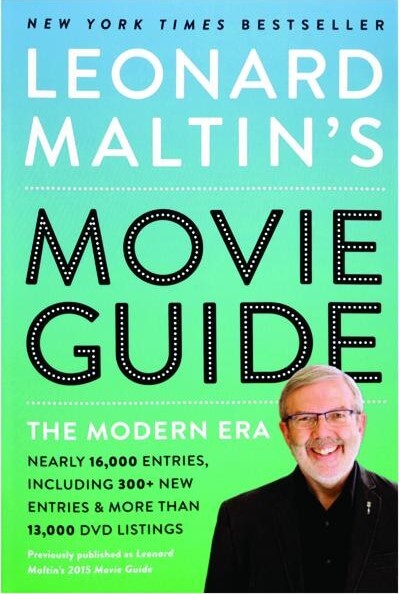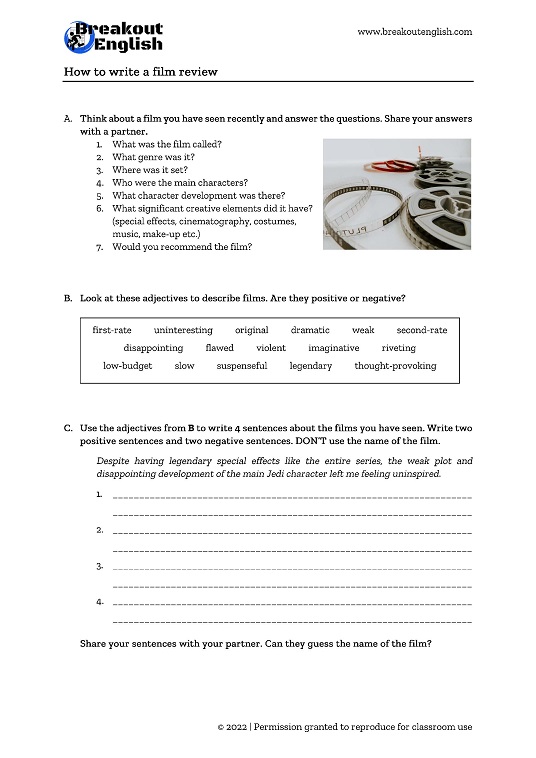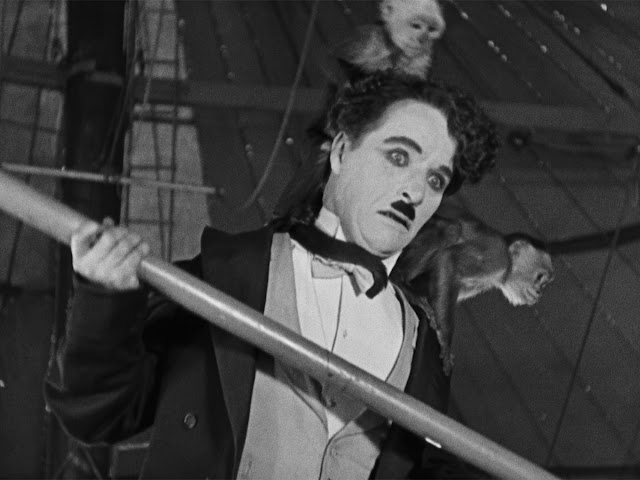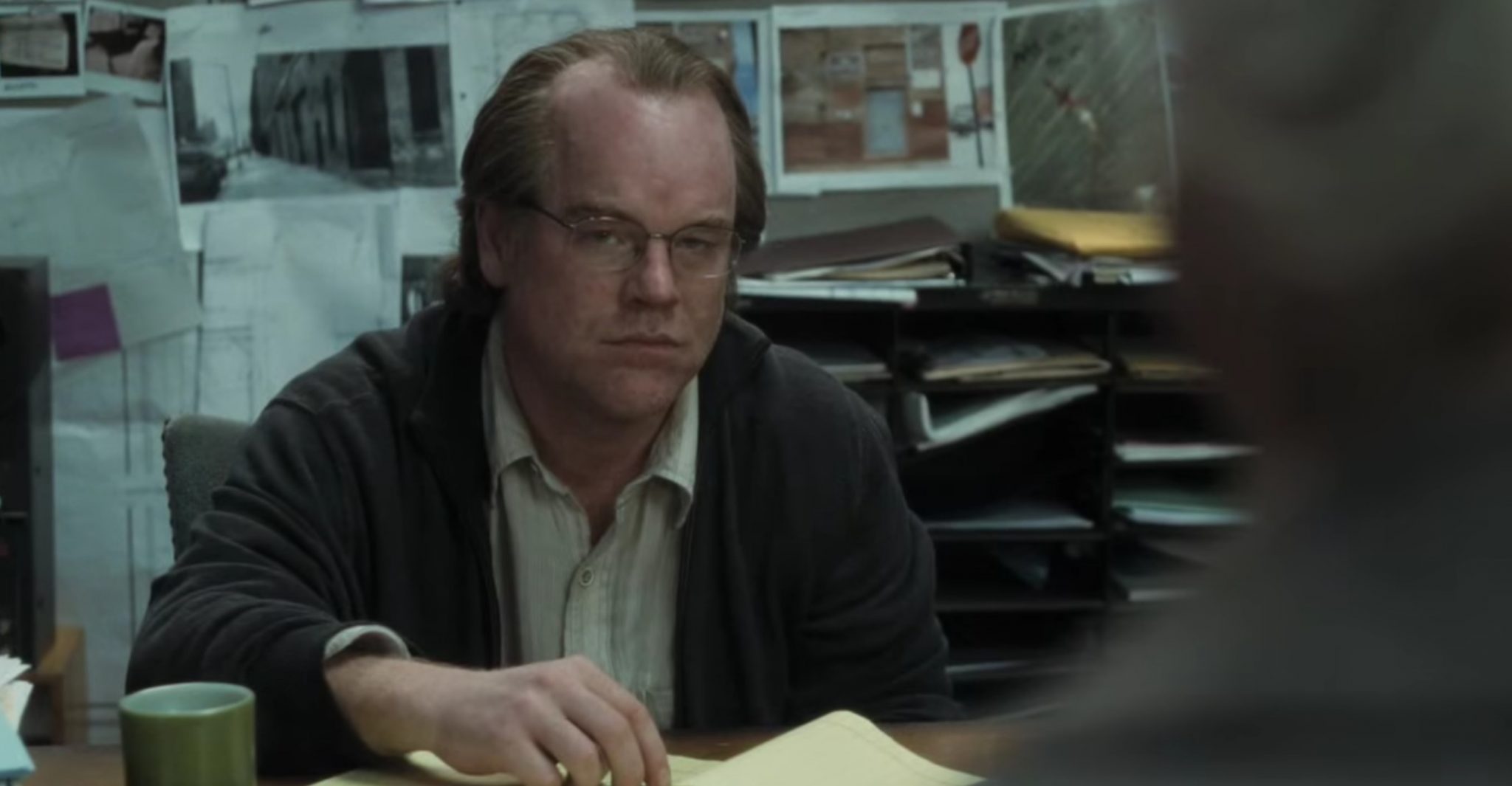

What is a Film Review — Definition, Examples & Top Critics
I n cinema, film reviews hold a significant place, serving as a bridge between the film industry and viewers. They provide an analytical perspective that helps audiences decide what to watch and understand the nuances of a film. In this article, we will delve into the definition of a film review, its critical components, and shed light on some iconic film review writers who have significantly shaped the field.
What is Film Review in Cinema?
First, let’s define film review.
Film reviews hold a unique place in cinema acting as both promotional tools and critical analysis pieces. With the rise of platforms like Letterboxed and Rotten Tomatoes, they are becoming more relevant in the cinematic landscape.
FILM REVIEW DEFINITION
What is a film review.
A film review is a type of critique that provides an evaluation of a film, encompassing various aspects such as the plot, themes, direction, script, and performances. Originating in the early 20th century with the advent of cinema, film reviews have evolved from mere opinion pieces in newspapers to a significant form of journalistic writing.
The primary purpose of a film review is to inform the reader about the film and offer an informed opinion about its various elements. It serves as a guide for viewers, helping them decide whether the film is worth their time and money.
Criteria for Movie Review:
Overview of the film, analysis of the plot and themes, evaluation of the script, direction, and acting, personal opinion and rating, movie review format, components of a good film review.
Film reviews are a blend of various vital components, each contributing to a comprehensive analysis. From evaluating performances and storytelling to dissecting technical aspects, a well-rounded review provides a holistic perspective. By examining these elements of a movie review format we can gain a deeper understanding of the film's impact and appreciate its artistic merit.
This includes a brief synopsis that sets the context without revealing any spoilers. The overview should pique the reader's interest and give them a sense of the film's storyline. Here is one of the greatest film critics, Roger Ebert, on what a film review should do.
Roger Ebert What A Movie Review Should Do
This involves a deeper look into the narrative and the underlying themes of the film. It should explore the storyline's complexity, originality, and coherence.
This component assesses the technical aspects of the film, such as the screenplay , cinematography , direction, music, and performances. It also includes an assessment of how these elements contribute to the overall impact of the film.
This is much more popular with the rise of film criticism on Youtube in which film critics can simultaneously play and dissect a scene for an audience. In this video by Nerdwriter1, Paul Thomas Anderson’s There Will Be Blood is dissected visually in a way that would be difficult or at least less effective without a video component.
One Way To Deconstruct There Will Be Blood
This is where the reviewer shares their personal view and overall impression of the film. It often includes a rating system, which can help readers quickly gauge the reviewer's opinion.
A good film review strikes a balance between objective analysis and personal perspective. It is also important that the review uses engaging language and style to hold the reader's attention.
What is Film Review Important For?
Influence of film reviews.
Film reviews have a significant impact on public opinion and can greatly influence the success of a film. A positive review from a reputable critic can attract more viewers and increase the film's box office revenue. On the other hand, a negative review can dissuade audiences from watching the film.
Attracting Viewers
Positive reviews can generate buzz and attract a larger audience to the theaters. They serve as a powerful tool in building anticipation and interest among moviegoers. Take Rotten Tomatoes for example. Many film goers opt to check the Rotten Tomatoes reviews of a film before they decide to watch or see it in cinema.
While this can work well for some movies in attracting viewers, it can negatively impact other films. This is especially true with the way Rotten Tomatoes rating system works. For a great insight on to how the platform works and the possible problems with its ratings, check out the video below.
The Problem With Rotten Tomatoes
Box office success.
Positive reviews often contribute to a film's box office success. When critics praise a movie, it can lead to increased ticket sales and financial profitability for the filmmakers.
Influence on Perception
Reviews shape how people perceive a film. Positive reviews create a positive perception, making viewers more likely to give the movie a chance. On the other hand, negative reviews can deter potential viewers and impact the film's overall reception.
Critical Acclaim
When a film receives critical acclaim from respected reviewers and publications, it can achieve iconic status. This recognition elevates the film's reputation and can lead to long-lasting popularity and cultural significance.

Parasite’s Historic Oscar Wins in 2020
Film reviews hold considerable sway in the film industry. They not only impact the number of viewers but also shape how a film is perceived and remembered.
Related Posts
- What is Cinematography? →
- Understanding Story Structure →
- How Does Rotten Tomatoes Work? →
Movie Review Example and Writers
Iconic film review writers.
The field of film criticism has been significantly influenced by several notable writers who have left a lasting impact on the industry. These writers, through their insightful analyses and thought-provoking perspectives, have shaped the way we perceive and appreciate films. Their contributions have not only elevated the art of film criticism but have also enriched our understanding of cinema as a whole.
Roger Ebert
Known for his acerbic wit and insightful commentaries, Ebert was one of the most influential film critics. His reviews, published in the Chicago Sun-Times for over four decades, were known for their accessible writing style and keen observations.
Pauline Kael
Writing for The New Yorker, Kael was known for her passionate and provocative reviews. She championed many underappreciated films and filmmakers, influencing public opinion and the course of American cinema.
Pauline Kael on Criticism
Andrew sarris.
A leading proponent of the auteur theory in America, Sarris's writings in The Village Voice and The New York Observer have had a profound impact on the way films are analyzed and appreciated.
Leonard Maltin
Renowned for his annual publication, "Leonard Maltin's Movie Guide," Maltin's reviews are known for their succinctness and precision. His work has guided generations of moviegoers.

Leonard Maltin's Movie Guide
These critics, with their unique perspectives and styles, have made enduring contributions to film criticism, influencing not just audiences but filmmakers as well.
Film reviews, like the movies themselves, are a form of art. They capture the essence of a film, dissect it, and present it to the audience in a refined form. With their insightful analysis, they help us, the viewers, to better understand and appreciate cinema.
Remember, a review is not meant to replace or reflect your own judgment of a film but to complement and deepen your viewing pleasure. So, read, watch, and form your own judgment - because nothing compares to your own cinematic experience.
How Does Rotten Tomatoes Work?
As we delve deeper into the world of film reviews and their unique influence, let's turn our attention to a specific and influential platform. In the next article, we explore the intricacies of the Rotten Tomatoes ratings system.
Up Next: How Does Rotten Tomatoes Work? →
Showcase your vision with elegant shot lists and storyboards..
Create robust and customizable shot lists. Upload images to make storyboards and slideshows.
Learn More ➜
Leave a comment
Your email address will not be published. Required fields are marked *
- Pricing & Plans
- Product Updates
- Featured On
- StudioBinder Partners
- The Ultimate Guide to Call Sheets (with FREE Call Sheet Template)
- How to Break Down a Script (with FREE Script Breakdown Sheet)
- The Only Shot List Template You Need — with Free Download
- Managing Your Film Budget Cashflow & PO Log (Free Template)
- A Better Film Crew List Template Booking Sheet
- Best Storyboard Softwares (with free Storyboard Templates)
- Movie Magic Scheduling
- Gorilla Software
- Storyboard That
A visual medium requires visual methods. Master the art of visual storytelling with our FREE video series on directing and filmmaking techniques.
We’re in a golden age of TV writing and development. More and more people are flocking to the small screen to find daily entertainment. So how can you break put from the pack and get your idea onto the small screen? We’re here to help.
- Making It: From Pre-Production to Screen
- What is Film Distribution — The Ultimate Guide for Filmmakers
- What is a Fable — Definition, Examples & Characteristics
- Whiplash Script PDF Download — Plot, Characters and Theme
- What Is a Talking Head — Definition and Examples
- What is Blue Comedy — Definitions, Examples and Impact
- 0 Pinterest
BibGuru Blog
Be more productive in school
- Citation Styles
How to write a movie review [Updated 2023]

Writing a movie review is a great way to practice critical analysis skills. In this post, we explore what a movie review is, how to start a film review, and steps for writing and revising it.
What is a movie review?
A movie review is a concise evaluation of a film’s content and formal elements (cinematography, sound, lighting, etc.). Also known as a film review, a movie review considers not just what a film means, but how it means. Essentially, when you write a film review, you are conducting a critical analysis or close reading of a movie.
How to write a movie review
To write a successful review about a movie, you need to evaluate a film’s content, as well as its form. In this section, we break down these two components.
A film’s content includes its plot (what it’s about), characters, and setting. You’ll need to determine the main plot points of the film and how the film’s story works overall.
Are there parts that don’t make sense? Are certain characters more important than others? What is the relationship between the movie’s plot and its setting? A discussion of a film’s content provides good context for an analysis of its form.
Form refers to all of the aesthetic and/or formal elements that make a story into a movie. You can break down form into several categories:
- Cinematography : This element comprises all aspects of the movie that derive from the way a camera moves and works. You’ll need to pay attention to elements like camera angles, distances between the camera and the subject, and types of shots (i.e. close-up, aerial, etc.).
- Lighting : Films use lighting in various ways to communicate certain effects. For instance, noir films tend to utilize chiaroscuro lighting (deep contrasts between light and dark) to express a sense of secrecy or foreboding.
- Sound : The way a film uses sound can vary considerably. Most movies have a soundtrack, sometimes with music composed specifically for the film. Some films play around with ambient sounds or use silence at key points to signify important moments. What is the relation of sound to the image in specific scenes or sequences? Do sounds link images? Does it ever become more important than the image?
- Editing : The movies we watch online or in theaters have been heavily edited in order to achieve a particular flow. When you are preparing to write a movie review, pay close attention to elements like the length of shots, transitions between scenes, or any other items that were finalized after filming.
- Costumes, Props, and Sets : Are the costumes and props believable in relation to the film’s content and setting? Are costumes particularly elaborate or understated?
The important thing to remember when you are analyzing the formal elements of a movie is that every image, sound, movement, and object has meaning and has been planned. Your review needs to take into consideration how these elements work together with the film’s storyline to create a whole experience.
Once you’ve considered both the content and form of the movie that you’re reviewing, you can begin to evaluate the film as a whole. Is it a successful movie? Would you recommend it? Why or why not?
Step-by-step review writing tips
1. watch the movie.
The first time that you watch the movie, look for overarching themes or patterns, and establish what the film is primarily about. Take note of the main characters, as well as the setting.
2. Watch the movie again and take notes
Next, watch the movie again and take notes as you are doing so, keeping in mind the formal aspects discussed above. Write down anything that seems significant.
3. Evaluate the film’s form and content
Using the categories described above, and any handouts or guides provided by your instructor, evaluate the film’s formal elements along with its content. Are there elements of the movie that strike you as unfamiliar or perplexing? Are there elements that are repeated to emphasize a point or perception?
4. Write your review
A good movie review will contain:
- an introductory paragraph that tells the reader what movie you’re reviewing
- a paragraph that summarizes the movie
- several body paragraphs that explore significant formal elements and how they relate to the content
- a concluding paragraph that discusses your overall reaction to the film and whether or not you would recommend it to others
5. Create citations
You’ll need cite the film and any secondary sources that you consulted while writing. Use BibGuru’s citation generator to instantly create accurate citations for movies, as well as articles, books, and websites.
You may also want to consult a guide on how to cite a film in MLA or another major citation style .
6. Revise and proofread
Once you’ve written your review, you should set aside some time to revise and proofread it before you turn it in.
Movie review checklist
You can use this checklist to ensure that you’ve considered all of the formal elements, as well as the content, of the film that you’re reviewing:
🔲 Cinematography (camera moves and types of shots)
🔲 Lighting (natural vs. artificial light, contrasts between light and dark)
🔲 Sound (soundtrack, sound vs. silence, loud vs. soft sounds)
🔲 Editing (length of shots, transitions between scenes)
🔲 Costumes, props, and sets (believable vs. staged)
🔲 Content (plot, characters, setting)
Frequently Asked Questions about how to write a review about a movie
A movie review should contain a brief summary of the film, several paragraphs of analysis that focus on form and content, and a concluding paragraph that sums up your reaction.
Before you write anything, you need to watch the film at least once. Take notes as you’re watching and pay attention to formal elements and patterns. Then, write your review. The final step is to revise your work before you turn it in.
The tone for a movie review should be critical, yet objective. The goal of most reviews is to persuade a reader to either see a film or not.
The best film reviews balance plot summary with critical analysis of significant formal elements. A reader should be able to decide if she wants to see the film after reading the review.

Make your life easier with our productivity and writing resources.
For students and teachers.
- PRO Courses Guides New Tech Help Pro Expert Videos About wikiHow Pro Upgrade Sign In
- EDIT Edit this Article
- EXPLORE Tech Help Pro About Us Random Article Quizzes Request a New Article Community Dashboard This Or That Game Popular Categories Arts and Entertainment Artwork Books Movies Computers and Electronics Computers Phone Skills Technology Hacks Health Men's Health Mental Health Women's Health Relationships Dating Love Relationship Issues Hobbies and Crafts Crafts Drawing Games Education & Communication Communication Skills Personal Development Studying Personal Care and Style Fashion Hair Care Personal Hygiene Youth Personal Care School Stuff Dating All Categories Arts and Entertainment Finance and Business Home and Garden Relationship Quizzes Cars & Other Vehicles Food and Entertaining Personal Care and Style Sports and Fitness Computers and Electronics Health Pets and Animals Travel Education & Communication Hobbies and Crafts Philosophy and Religion Work World Family Life Holidays and Traditions Relationships Youth
- Browse Articles
- Learn Something New
- Quizzes Hot
- This Or That Game New
- Train Your Brain
- Explore More
- Support wikiHow
- About wikiHow
- Log in / Sign up
- Arts and Entertainment
- Film Studies
How to Write a Movie Review
Last Updated: March 13, 2024 Fact Checked
wikiHow is a “wiki,” similar to Wikipedia, which means that many of our articles are co-written by multiple authors. To create this article, 179 people, some anonymous, worked to edit and improve it over time. There are 14 references cited in this article, which can be found at the bottom of the page. This article has been fact-checked, ensuring the accuracy of any cited facts and confirming the authority of its sources. This article has been viewed 5,573,050 times. Learn more...
Whether a movie is a rotten tomato or a brilliant work of art, if people are watching it, it's worth critiquing. A decent movie review should entertain, persuade and inform, providing an original opinion without giving away too much of the plot. A great movie review can be a work of art in its own right. Read on to learn how to analyze a movie like a professional film critic, come up with an interesting thesis, and write a review as entertaining as your source material.
Sample Movie Reviews

Writing an Intro for a Movie Review

- Comparison to Relevant Event or Movie: "Every day, our leaders, politicians, and pundits call for "revenge"– against terrorist groups, against international rivals, against other political parties. But few of them understand the cold, destructive, and ultimately hollow thrill of revenge as well as the characters of Blue Ruin. "
- Review in a nutshell: "Despite a compelling lead performance by Tom Hanks and a great soundtrack, Forrest Gump never gets out of the shadow of its weak plot and questionable premise."
- Context or Background Information: " Boyhood might be the first movie made where knowing how it was produced–slowly, over 12 years, with the same actors–is just as crucial as the movie itself."

- Using stars, a score out of 10 or 100, or the simple thumbs-up and thumbs-down is a quick way to give your thoughts. You then write about why you chose that rating.
- Great Movie: ABC is the rare movie that succeeds on almost every level, where each character, scene, costume, and joke firing on all cylinders to make a film worth repeated viewings."
- Bad Movie: "It doesn't matter how much you enjoy kung-fu and karate films: with 47 Ronin, you're better off saving your money, your popcorn, and time."
- Okay Movie: "I loved the wildly uneven Interstellar far more than I should have, but that doesn't mean it is perfect. Ultimately, the utter awe and spectacle of space swept me through the admittedly heavy-handed plotting and dialogue."

- Great: "Michael B. Jordan and Octavia Spencer's chemistry would carry Fruitvale Station even if the script wasn't as good. The mid-movie prison scene in particular, where the camera never leaves their faces, shows how much they can convey with nothing but their eyelids, the flashing tension of neck muscles, and a barely cracking voice."
- Bad: " Jurassic World's biggest flaw, a complete lack of relatable female characters, is only further underscored by a laughably unrealistic shot of our heroine running away from a dinosaur – in heels."
- Okay: "At the end of the day, Snowpiercer can't decide what kind of movie it wants to be. The attention to detail in fight scenes, where every weapon, lightbulb, and slick patch of ground is accounted for, doesn't translate to an ending that seems powerful but ultimately says little of substance."

- Does the film reflect on a current event or contemporary issue? It could be the director's way of engaging in a bigger conversation. Look for ways to relate the content of the film to the "real" world.
- Does the film seem to have a message, or does it attempt to elicit a specific response or emotion from the audience? You could discuss whether or not it achieves its own goals.
- Does the film connect with you on a personal level? You could write a review stemming from your own feelings and weave in some personal stories to make it interesting for your readers.
Composing Your Review

- When you name characters in your plot summary, list the actors' names directly afterward in parenthesis.
- Find a place to mention the director's name and the full movie title.
- If you feel you must discuss information that might "spoil" things for readers, warn them first.

- Cinematography: " Her is a world drenched in color, using bright, soft reds and oranges alongside calming whites and grays that both build, and slowly strip away, the feelings of love between the protagonists. Every frame feels like a painting worth sitting in."
- Tone: "Despite the insane loneliness and high stakes of being stuck alone on Mars, The Martian's witty script keeps humor and excitement alive in every scene. Space may be dangerous and scary, but the joy of scientific discovery is intoxicating."
- Music and Sound: " No Country For Old Men's bold decision to skip music entirely pays off in spades. The eerie silence of the desert, punctuated by the brief spells of violent, up-close-and-personal sound effects of hunter and hunted, keeps you constantly on the edge of your seat."
- Acting: "While he's fantastic whenever he's on the move, using his cool stoicism to counteract the rampaging bus, Keanu Reeves can't quite match his costar in the quiet moments of Speed, which falter under his expressionless gaze."

- Keep your writing clear and easy to understand. Don't use too much technical filmmaking jargon, and make your language crisp and accessible.
- Present both the facts and your opinion. For example, you might state something such as, "The Baroque background music was a jarring contrast to the 20th century setting." This is a lot more informative then simply saying, "The music was a strange choice for the movie."

- Great: "In the end, even the characters of Blue Ruin know how pointless their feud is. But revenge, much like every taut minute of this thriller, is far too addictive to give up until the bitter end.""
- Bad: "Much like the oft-mentioned "box of chocolates", Forest Gump has a couple of good little morsels. But most of the scenes, too sweet by half, should have been in the trash long before this movie was put out."
- Okay: "Without the novel, even revolutionary concept, Boyhood may not be a great movie. It might not even be "good.” But the power the film finds in the beauty of passing time and little, inconsequential moments – moments that could only be captured over 12 years of shooting – make Linklater's latest an essential film for anyone interested in the art of film."
Polishing Your Piece

- Ask yourself whether your review stayed true to your thesis. Did your conclusion tie back in with the initial ideas you proposed?
- Decide whether your review contains enough details about the movie. You may need to go back and add more description here and there to give readers a better sense of what the movie's about.
- Decide whether your review is interesting enough as a stand-alone piece of writing. Did you contribute something original to this discussion? What will readers gain from reading your review that they couldn't from simply watching the movie?


Studying Your Source Material

- The title of the film, and the year it came out.
- The director's name.
- The names of the lead actors.

- Make a note every time something sticks out to you, whether it's good or bad. This could be costuming, makeup, set design, music, etc. Think about how this detail relates to the rest of the movie and what it means in the context of your review.
- Take note of patterns you begin to notice as the movie unfolds.
- Use the pause button frequently so you make sure not to miss anything, and rewind as necessary.

- Direction: Consider the director and how he or she choose to portray/explain the events in the story. If the movie was slow, or didn't include things you thought were necessary, you can attribute this to the director. If you've seen other movies directed by the same person, compare them and determine which you like the most.
- Cinematography: What techniques were used to film the movie? What setting and background elements helped to create a certain tone?
- Writing: Evaluate the script, including dialogue and characterization. Did you feel like the plot was inventive and unpredictable or boring and weak? Did the characters' words seem credible to you?
- Editing: Was the movie choppy or did it flow smoothly from scene to scene? Did they incorporate a montage to help build the story? And was this obstructive to the narrative or did it help it? Did they use long cuts to help accentuate an actor's acting ability or many reaction shots to show a group's reaction to an event or dialogue? If visual effects were used were the plates well-chosen and were the composited effects part of a seamless experience? (Whether the effects looked realistic or not is not the jurisdiction of an editor, however, they do choose the footage to be sent off to the compositors, so this could still affect the film.)
- Costume design: Did the clothing choices fit the style of the movie? Did they contribute to the overall tone, rather than digressing from it?
- Set design: Consider how the setting of the film influenced its other elements. Did it add or subtract from the experience for you? If the movie was filmed in a real place, was this location well-chosen?
- Score or soundtrack: Did it work with the scenes? Was it over/under-used? Was it suspenseful? Amusing? Irritating? A soundtrack can make or break a movie, especially if the songs have a particular message or meaning to them.

Community Q&A

- If you don't like the movie, don't be abusive and mean. If possible, avoid watching the movies that you would surely hate. Thanks Helpful 1 Not Helpful 1
- Understand that just because the movie isn't to your taste, that doesn't mean you should give it a bad review. A good reviewer helps people find movie's they will like. Since you don't have the same taste in movies as everyone else, you need to be able to tell people if they will enjoy the movie, even if you didn't. Thanks Helpful 2 Not Helpful 0
- Structure is very important; try categorizing the different parts of the film and commenting on each of those individually. Deciding how good each thing is will help you come to a more accurate conclusion. For example, things like acting, special effects, cinematography, think about how good each of those are. Thanks Helpful 1 Not Helpful 0

You Might Also Like

- ↑ https://owl.purdue.edu/owl/subject_specific_writing/writing_in_literature/writing_about_film/terminology_and_starting_prompts.html
- ↑ https://www.spiritofbaraka.com/how-write-a-movie-review
- ↑ https://www.nyfa.edu/student-resources/9-tips-for-writing-a-film-review/
- ↑ https://en.oxforddictionaries.com/writing-help/top-tips-for-writing-a-review
- ↑ https://writingcenter.unc.edu/tips-and-tools/summary-using-it-wisely/
- ↑ https://twp.duke.edu/sites/twp.duke.edu/files/file-attachments/film-review-1.original.pdf
- ↑ https://www.dailywritingtips.com/7-tips-for-writing-a-film-review/
- ↑ https://owl.purdue.edu/owl/subject_specific_writing/writing_in_literature/writing_about_film/film_writing_sample_analysis.html
- ↑ https://learning.hccs.edu/faculty/onnyx.bei/dual-credit/movie-review-writing-guide
- ↑ https://writingcenter.unc.edu/tips-and-tools/conclusions/
- ↑ https://www.grammarly.com/blog/how-to-write-a-movie-review/
- ↑ https://gustavus.edu/writingcenter/handoutdocs/editing_proofreading.php
- ↑ https://writingcenter.unc.edu/tips-and-tools/editing-and-proofreading/
- ↑ https://edusson.com/blog/how-to-write-movie-review
About This Article
To write a movie review, start with a compelling fact or opinion to hook your readers, like "Despite a great performance by Tom Hanks, Forrest Gump never overcomes its weak plot." Then, elaborate on your opinion of the movie right off the bat so readers know where you stand. Once your opinion is clear, provide examples from the movie that prove your point, like specific scenes, dialogue, songs, or camera shots. To learn how to study a film closely before you write a review, scroll down! Did this summary help you? Yes No
- Send fan mail to authors
Did this article help you?

Featured Articles

Trending Articles

Watch Articles

- Terms of Use
- Privacy Policy
- Do Not Sell or Share My Info
- Not Selling Info
Don’t miss out! Sign up for
wikiHow’s newsletter
Breakout English

How to write a film review
Writing a review is an option in many different English language exams, and films are such an obvious choice for reviews, so knowing how to write a film review is pretty important. It’s a great topic for the classroom too. Everyone watches films and there is a lot of opportunity to teach vocabulary, either film-related vocabulary or film review adjectives. I like to start off a class about films with some chat, or my personal favourite, the Movie Music Quiz , which also now has an excellent Movie Picture Quiz version too.

The structure of a film review
Like any writing task, it’s essential to know the structure of a film review before you start writing. A basic film review template shows you how to write a film review using a simple structure. Film reviews for First (FCE) and Advanced (CAE) Cambridge exams, as well as Trinity ISE exams, should all use a 4 paragraph structure. Another thing to remember is that your review should always have a title, and that title should include the name of the film.
- Introduction – Essential details and mini-summary
- Summary – A description of the film and some important details
- Analysis – An evaluation of different elements
- Conclusion – Your opinion and a recommendation
Introduction
In the introduction of a film review, it is crucial to mention the film title and the names of the director and the main actors. A brief summary of the film’s plot and background information can also be included, but it should not give away too much detail. The introduction should engage the reader and entice them to continue reading the review. Additionally, it is important to mention the genre and target audience of the film, which will give the reader an idea of what to expect.
In the summary section, the film review should give a comprehensive but concise description of the film, focusing on the plot, characters, and any significant events. The summary should be written in a way that does not give away the ending or spoil the film for the reader. It is important to maintain objectivity and not include personal opinions in this section. This section should provide enough detail for the reader to have a clear understanding of the film without giving too much away.
The analysis section is where the reviewer can showcase their critical skills and provide an in-depth evaluation of the film. The review should examine various elements of the film such as the script, direction, cinematography, acting, and special effects. You could also make a comparison to similar films in the same genre. The analysis should be written in an objective style with the opinion only showing through the language used.
In the conclusion, the reviewer should give their personal opinion of the film, summarising their thoughts on its strengths and weaknesses. They should also consider the target audience and whether they believe the film will appeal to them. Finally, the reviewer should provide a clear recommendation. The conclusion should be concise, leaving the reader with a clear understanding of the reviewer’s overall opinion of the film.
Using adjectives in reviews
Reviews are a great way to show off your language with impressive adjectives. If you read a film review in a newspaper or magazine, you’ll notice that the reviewer rarely, if ever, gives an explicit direct opinion. However, their opinion of the film is always crystal clear. This is through the use of adjectives.
Many adjectives have a clear connotation. They are either perceived as positive or negative. Compare these two examples. Which one is a positive description and which is negative?
- It’s a first-rate experience with an imaginative plot and a star-studded cast.
- The second-rate writing combined with weak performances is typical of this director’s work.
When using adjectives in a film review, it is important to choose words that accurately convey the reviewer’s opinion. Adjectives with strong connotations, either positive or negative, can be very effective in expressing the reviewer’s thoughts about the film. However, it is also important to use a variety of adjectives to avoid repetition and keep the review interesting. The use of adjectives can also help to paint a picture of the film, allowing the reader to get a sense of its atmosphere and tone.
The materials
Many exams, such as the Cambridge First (FCE) and Advanced (CAE) exams, as well as Trinity ISE exams, require students to write a film review as part of their writing task. These materials will provide students with a solid understanding of the structure of a film review and help them to develop their writing skills. This will give them the confidence they need to write a review that meets the requirements of the exam and impresses the examiner.
The materials will help you learn how to write an introduction, summary, analysis, and conclusion of a film review. You will also see a range of useful adjectives that you can use to express your opinions in their reviews. Finally, you will get an opportunity to practise writing film reviews, which will help you to develop your skills. Then you can check your answers with the samples provided in the answer key. Whether you’re preparing for an exam or just looking to improve your writing skills, these materials will provide you with everything you need to write a great film review.

1 thought on “How to write a film review”
Interesting and useful material to be used in class. thanks!
Comments are closed.

- 1-800-611-FILM
How to Write a Movie Review: 10 Essential Tips
As long as there have been films, there have been film critics. Starting with the early days of cinema, where reviews appeared in newspapers and magazines as brief, descriptive pieces, as filmmaking evolved as an art form, so did the role of the critic. James Agee, André Bazin, and Pauline Kael shaped the discourse around cinema, and today, famous film critics like the iconic Roger Ebert , The New York Times’s A.O. Scott , and The New York Times’s Manohla Dargis continue to leave an indelible mark on the world of cinema.
With the rise of the internet, film criticism now encompasses a wide range of voices and perspectives from around the globe. Sites like Letterboxd make it possible for anyone to write short-form reviews on film. Even stars like The Bear’s Ayo Edebiri have accounts and share opinions on the latest box-office hits.
How to Write a Movie Review
Today, contemporary YouTube and TikTok critics such as Red Letter Media , deepfocuslens , and DoMo Draper don’t just write film reviews, they shoot videos and skits. Through their creative formats, they offer refreshing and unique perspectives while building communities of diehard film and television enthusiasts. Whether you choose to write reviews for your own blog, other websites, or social media channels, by learning how to write a movie review, any aspiring filmmaker can start to watch films intentionally.
@domodraperr Replying to @xsindeviltriggerx I’ll get right on that, Sir!🫡 #comments #movies #film #satire #fyp #mulan #disney ♬ I’ll Make a Man Out of You (feat. Black Gryph0n) – Cover – Samuel Kim
TikTok film critic “DoMo Draper” provides commentary on new and old films, often calling out racism, social injustice, misogyny, and prejudice.
While there’s no perfect approach to writing a review, there are best practices that every aspiring reviewer should consider.
Here are ten tips on writing a compelling piece.
1. Watch the film at least once.
For new reviewers, it’s impossible to capture everything after one viewing. Watching the film first, then watching to take notes, is an easy way to improve the quality of your final review. This will also make it easy to recall in-the-moment thoughts and reactions.

Take a review by Christian Blauvelt of Charlie Chaplin’s silent film The Circus , for example. Since the film does not have sound, properly critiquing the film requires close attention. Viewers have to pay attention to the various nuances in Chaplin’s performance, follow the story, and take in the cinematography. Regarding The Circus , Blauvelt writes, “The film lacks a conventional plot, but is rather a pearl necklace of strung-together episodes. ” The statement isn’t a criticism, but a keen observation likely gleaned from more than one viewing.
So while every film reviewer has their own approach, many choose to watch a film more than once to deliver the best possible review. Image The Criterion Collection.
2. Express your opinions and support your criticism.
Professional reviewers do not shy away from sharing whether they thought a movie was good, bad, or indifferent. In a review for the film Mother!, reviewer Candice Frederick describes the film as “uncomfortable,” and “controversial,” helping viewers understand the tone of the movie. While Frederick seemed to enjoy the film, her honesty about how it would make audiences feel was vital in writing the review.
Be sure to back up these thoughts with specifics–a disappointing performance, beautiful cinematography, difficult material that leaves you thinking, and so on. Professional reviewers should express why and how they came to their criticism.
3. Consider your audience.
Are you writing for a fan site or a news outlet? Who will read your pieces, and what are their interests? Knowing who your readers are and where the review will be published can help you decide what elements of the movie to highlight. For example, take these two very different reviews for the film ‘Synecdoche, New York’.

The first review was written by Alonso Duralde for The Today Show , and clocks in at around 500 words. The film focuses on the bullet points: characters, plot, and a concise review. The second review is over 3,000 words and published on the Critical Critics blog . This review goes into massive depth (and yes, includes spoilers) about the film, providing an incredible amount of analysis. The first review is tailored for the casual filmgoer, while the second is for cinephiles. Each review serves a different purpose.
It’s also a good idea to adjust your writing style to fit the target audience. For example, Alonso Duralde is a talented film reviewer and likely wrote the review to fit the tone of The Today Show site. Image via Director’s Library.
4. Talk about the acting.
When reviewing a film, it’s important to take space to discuss the performances. Does the film feature a seasoned actor in a new kind of role or a brilliant performance from a rising star? How was the acting? In a review by Brett Milam for the award-winning film Whiplash , he goes into rich detail about performances by both breakthrough actor Miles Teller and seasoned professional JK Simmons.
Regarding Teller, Milam writes, “This is a performance. This is art,” and about Simmons, “I found him fascinating to just look at.” Those are just small examples of the analysis he provides regarding their acting. As the film mostly focuses on the relationship between their two characters, Miles as the protagonist and JK as the antagonist, the review of the performances lends well to the plot of the film: student and teacher going head to head in an intense and determined showdown.
Feedback about how well the actors handled the script, the dynamics in an ensemble, and so much more can help describe how the actors did in any given film.
5. Call out directors, cinematographers, and special effects.
Reviews that include highlights or missteps of directors, cinematographers, and costume designers can help provide support to your critiques. By providing specific examples of what worked, what surprised you, and what fell short of expectations, reviewers can write a well-thought-out review that goes beyond whether or not you liked it.

In a review for A Wrinkle in Time , Monique Jones artfully crafts a piece that diplomatically cites the missteps of the film. From analyzing the quality of the CGI to the camera techniques to inconsistencies in the rules of the fantasy universe, Jones fairly offers a critique that guides the filmmakers and crew on future endeavors. To write this type of review, it helps to have some knowledge of the filmmaking process so you can properly assess the screenwriting, cinematography, special effects, acting, and more. Image via Disney.
6. No spoilers!
The point of writing a movie review is to get people interested in seeing a movie. That’s why it’s absolutely best practice to not reveal spoilers in a film review. Film reviewer Robert Daniels approaches this creatively. In his review of Annihilation , he provides commentary on what would be considered spoilers. However, he places that part of the review at the bottom of the article under a bold header/image that warns the reader he’s about to spoil the film. For reviewers who want to dissect the entire film, this is a good way to both tease the film for anyone who hasn’t seen it and cater to people who want to know what the ending is.
Remember: the goal of any film review is to discuss the plot without revealing any twists or the ending of the film.
7. Study the professionals.
As with all writing endeavors, the more you read, the better. However, with the modern landscape of film reviewing, which can go beyond writing and extend to content creation for social media platforms, there are a ton of reviewers to take notes from. First, determine what kind of reviewer you want to be, and what kind of medium you plan to deliver your reviews on. If you plan to post to Medium, for example, studying the reviewers already established on the site can be a great starting point.
Then, read film reviews for some of your favorite films. Determine which style of review you like and don’t like. Question why, and use your critical eye to consider why one reviewer has a hundred thousand followers and another only has two. If you’re looking to be featured on a website or a magazine, read the publications where you’d like your writing to appear as a template for your reviews, and don’t forget to read the submission guidelines. A few examples of film review professionals include Rotten Tomatoes , Roger Ebert , and Film Comment.
8. Reread, rewrite, and edit.
While writing film critique is based on opinion, and follows the style of the reviewer, it’s still important to edit work. Writers should check for spelling, grammar, and readability. No matter how good a writer’s opinions are, they will not be taken seriously if the director’s name isn’t spelled correctly. Tools such as Grammarly and Hemingway Editor can be great for correcting and finding areas that need improvement.
9. Find your voice.
The best reviewers have a distinct personality that comes across in their writing. Los Angeles Times film reviewer Carlos Aguilar wrote an impassioned piece about the film Beatriz at Dinner , going into a lot of detail about his experiences working in the film industry and his Mexican heritage. By sharing anecdotes about casual racism he’s experienced and connecting it to the film’s protagonist, and what she goes through, the review feels personal and relatable.

“If at a film festival – to which I’ve gotten access to because I’m a published writer – in a progressive city like Los Angeles, I must keep my guard up when people question my right to be there, then how are the voiceless supposed to feel safe, respected, or hopeful?” Aguilar writes.
For new reviewers, developing this type of unique voice does not happen overnight, so take every opportunity to write as an opportunity to develop your style. Image via BBC.
10. Know your taste.
As a film reviewer, it can be helpful to identify your taste in film. By knowing specific preferences, strengths, and biases, reviewers can offer nuanced critiques that resonate with audiences and provide valuable guidance on which films they might enjoy. Additionally, it helps to maintain credibility and integrity as a reviewer by ensuring that assessments are authentic and reflective of personal cinematic sensibilities.
Try to explore various genres, directors, and themes to understand what resonates emotionally, intellectually, and aesthetically. Pay attention to the types of stories that engage you, which can help define your preferences.
Learn More About Filmmaking at NYFA
Film students with writing experience actually make great reviewers, as many of them are required to study a range of topics relating to film that can include cinematography, screenwriting, producing, and much more. Ready to build even more skills in filmmaking? Request more information about New York Film Academy’s filmmaking programs and workshops today!

The app that tells you the best time to
run and pee during a movie without missing the best scenes.
100% free (donation supported) Apple App Store | Google Play Store
How to write a Movie review guide for dummies

Film reviews are a point of interest for all. Whether you are the audience, a filmmaker, or an actor, writing and reading film reviews can sharpen your ability to critically analyze and evaluate. Once you start writing reviews, you can look beyond the prominent aspects of a filmmaking , e.g., the costume designs.
Did you ever watch a film and exclaimed: “this film is amazing”? Well, dig deep into the film to analyze every aspect of it. We assure you will find out how it is more than just impressive.
The World’s Most Indispensable Movie App
The RunPee app tells you the best times to run & pee during a movie so you don't miss the best scenes.
Download the RunPee app. 100% free (donation supported)
Read more about the RunPee app .
What is a movie review?
A movie review is a balanced synthesis of the reviewer’s point of view, further analyzed. Moreover, the film review is a sub-part of creative review writing. Since a film is classified as an artwork, you will have to adopt a creative yet evaluative approach while writing. This combination will allow you to produce high-quality work that will tempt the masses.
As for the review structure, the text for a review shall not exceed 1000 words and should have a reasonable length.
However, to further enhance your review writing skills, you will have to learn how to write a movie review. For this purpose you can read from different websites and collect authentic information with the use of some good resources .
How to write a movie review?
If you are thinking of writing a movie review on your favourite movie, but you are a beginner, here is how to write a film review for dummies.
What people are saying about the RunPee app.
Brett Robb (Hyperswivel)
January 7, 2024
Couldn’t live without this app anymore. Perfect to time my run for another glass of wine or two. Works great with my smart watch.
View all reviews: Apple App Store | Google Play Store
Step#1 Watch the movie
This may be an obvious step, but it is an important one.
Head over to YouTube or Netflix and play the movie all over again with the perspective of analyzing it. While doing so, note the slightest of the detail, including the actors’ performance, direction, and aesthetics.
Also, you can take down notes for future reference. This will help you keep track of where exactly you noticed a particular element.
Step#2 Know your readers
Are you writing for a fan site, a national site, or a teen magazine?
Before starting to work on the review, consider the audience who will read your film reviews. A national news outlet will require a different writing style for a fan site or a magazine.
Therefore, you will have to decide the writing technique based on your audience.
Step#3 research well
Researching is the key.
Before writing a film review, it is imperative to know about the actors’ profiles and professional opinions. Viewers would appreciate it if you add a little comment on the prominent actors’ performance and their overall persona throughout the film.
The more you read about the movie, the better you will be able to write.
However, do not limit your research to the movie only. Keep a close eye on the fellow reviewers and observe the way they write. In this way, your understanding of review writing will improve, and you will be to draw a proper structure for your film review.
Step#3 Express
It is better to voice out your original opinions while writing a review than to fake one.
Therefore, do not hesitate to address the flaws within the direction, special effects, or actors’ performance.
If you feel like the cinematography or costume designs were not up to the mark, mention it but in a subtle way.
Similarly, feel free to appreciate the excellent areas of the film. Readers would love a bit of praise for their ideal actor.
Step#4 Avoid giving away spoilers
Did you ever hate it when a friend accidentally blurted out the plot twist of a latest movie you were thinking to watch? Well, everyone hates it.
The audience highly dislikes spoilers in the reviews. No one will want to know if their favorite character lives or dies.
We understand that referring to the movie while analyzing aspects while avoiding spoilers may be a daunting task, but you can avoid it in the best way possible.
To eliminate spoilers, avoid mentioning any plot twists, the climax scene, and anything that gives a hint of what will happen.
On the other hand, having little or massive spoilers can discourage the audience from further reading the review. Henceforth, spoilers might make your content unappealing.
Step#5 Review and edit your work
Once you have written the review, it’s about time you should take a break.
Once you have gained back your energy, start reviewing your work.
Read and reread the text to ensure everything is in place. Also, check for grammatical errors and sentence structures.
A variety of sentence structures can help break the monotony. Alongside this, look out for any spelling errors or any information you might have missed out.
If you are a student and want some expert to proofread, edit or improve your work, you can send your work here .
To conclude, look for the inner voice. Not everyone has the same writing and expression; every writer’s distinctive ability makes their content stand out. To find your unique point, analyze your capability and interests. Only then will you be able to grab your audience’s attention and encourage them to read more.
If you want to learn how to write a literature review, you can get complete info from Researchprospect.com.
About The Author:
Natasha Fletcher is a member of the writer’s Team on Resume Croc and 123essays.net . She has a bachelor’s in Law, Masters in Literature, and a PhD in Economics. Natasha role in the team is to solve students’ problems through content. Natasha is a gold medallist in essay writing. She is a fitness freak and love to play football, ice hockey and basketball.
Sharing is caring
RunPee Shop
Don’t miss your favorite movie moments because you have to pee or need a snack. Use the RunPee app ( Android or iPhone ) when you go to the movies. We have Peetimes for all wide release films every week, including Godzilla x Kong: The new Empire, Ghostbusters: Frozen Empire, DUNE part II and coming soon , Monkey Man, Civil War, The Ministry of Ungentlemanly Warfare and many others. We have literally thousands of Peetimes—from classic movies through today’s blockbusters. You can also keep up with movie news and reviews on our blog, or by following us on Twitter @RunPee . If there’s a new film out there, we’ve got your bladder covered.

If you would like to submit an article for publication on RunPee.com please contact [email protected] with your proposal.
Movie Reviews

Movie Review – Godzilla x Kong: The New Empire

Movie Review – Immaculate

Netflix’s Three-body – first episode review

Movie Review – Ghostbusters: Frozen Empire

Adam Savage Tours the Ghostbusters “Frozen Empire Firehouse” with director Jason Reitman

Movie Review – The American Society of Magical Negroes

Movie Review – Love Lies Bleeding

Movie Review – Knox Goes Away
Leave a reply cancel reply, privacy overview.

IMAGES
VIDEO
COMMENTS
What is a film review? A film review is a type of critique that provides an evaluation of a film, encompassing various aspects such as the plot, themes, direction, script, and performances. Originating in the early 20th century with the advent of cinema, film reviews have evolved from mere opinion pieces in newspapers to a significant form of ...
Step-by-step review writing tips. 1. Watch the movie. The first time that you watch the movie, look for overarching themes or patterns, and establish what the film is primarily about. Take note of the main characters, as well as the setting. 2. Watch the movie again and take notes.
Evaluate the film: After presenting your analysis and opinions, offer an overall evaluation of the film. Discuss whether the movie effectively conveyed its intended themes and storyline and whether you would recommend it to others. Some reviewers choose to assign a letter grade, passing grade, or percentage score to summarize their assessment.
It contains ten essential elements to look for in movie reviews, each representing one slice of the film pie. Each element is worth one point out of ten, and each element is divided into two ...
Find a place to mention the director's name and the full movie title. If you feel you must discuss information that might "spoil" things for readers, warn them first. 2. Start to talk about the film’s technical and artistic choices. Plot is just one piece of a movie, and shouldn't dictate your entire review.
Focus on performance, plot, and direction for the subsequent viewing. 5. Edit. Before you publish or submit your review, edit it for clarity, flow, and grammatical errors. Read through the review to assess the clarity of your perspective and cut any redundant information to improve the piece’s flow.
Writing the Film Review Although there is not a set formula to follow when writing a film review, the genre does have certain common elements that most film reviews include. 1) Introduction - In the opening of your review, provide some basic information about the film. You may include film’s name, year, director, screenwriter, and major actors.
Film reviews for First (FCE) and Advanced (CAE) Cambridge exams, as well as Trinity ISE exams, should all use a 4 paragraph structure. Another thing to remember is that your review should always have a title, and that title should include the name of the film. Introduction – Essential details and mini-summary.
1. Watch the film at least once. For new reviewers, it’s impossible to capture everything after one viewing. Watching the film first, then watching to take notes, is an easy way to improve the quality of your final review. This will also make it easy to recall in-the-moment thoughts and reactions.
Step#3 research well. Researching is the key. Before writing a film review, it is imperative to know about the actors’ profiles and professional opinions. Viewers would appreciate it if you add a little comment on the prominent actors’ performance and their overall persona throughout the film.